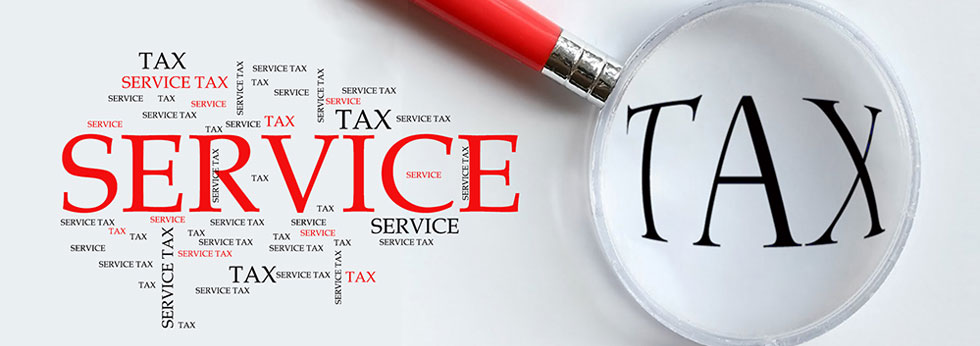The limitation period prescribed under any taxing statue plays a very important role in framing assessment, recovery of taxes etc. Service Tax law is also not an exception to the same. The tax dept. always invokes the extended period /maximum period of demand whereas the assessee contends the same on the ground of legality. Recently, the Hon’ble Allahabad High Court had an occasion to deal with one such related issue. In case of Commissioner of Customs and Central Excise & Service Tax Vs. Monsanto Manufacturer Private Limited – 2014 (4) TMI 505 the Hon’ble Court took the view that once the CESTAT had held the demand to be time barred, entering into the merits of the case and passing an order would amount to an illegality.
Position of Law:
Section 73 of the Finance Act, 1994 provides that the Central Excise Officer may recover the service tax from the assessee if the same has not been levied or not paid or short levied or short paid or erroneously refunded by issuing a show cause notice to the assessee within 18 months (earlier it was one year) from the relevant date. If there is an intention to evade payment by means of fraud, collusion, suppression of fact etc., the limitation period for issuing show cause notice is 5 years from the relevant date. The Revenue is to prove the case for invoking the extended period of limitation.
Facts of the case:
In the said case a notice to show cause was issued to the assessee on 21.7.2006 by which an amount of ₹ 9,46,766/- towards service tax along with interest was demanded. The case of the Department is that on a scrutiny of the balance sheet for the year 2001-012 to 2004-05 and of relevant documents, the Audit team noticed that the assessee had received cold storage fixed rent charges up to 31.03.2005 in the amount of ₹ 1.46 crores from Hindustan Lever Limited for storage of frozen products. The agreement between the assessee and HLL was for providing clearing and forwarding agent’s service.
The show cause notice is for the period between 2001-02 and 2004-05 ending 31.03.2005. The Revenue contended that the assessee provided a facility for the storage of goods belong to HLL in a cold storage owned by the assessee. The compensation structure stipulated that the assessee would receive a fixed charge of ₹ 3.50 lacks per month for providing the facility of a cold storage and a reimbursement for clearing and forwarding agent expenses at a stipulated rate. The assessee was called upon to show cause as to why it should not be required to pay service tax amounting to ₹ 9,46,766/-
The Adjudicating Authority confirmed the demand with interest and imposed a penalty of ₹ 200 per day till the deposit of the duty subject to a maximum of ₹ 9,46,766/-. Penalties were also imposed at ₹ 500/- under Section 75A and ₹ 1000/- under Section 77. The assessee filed appeal before the Commissioner (Appeals) who reduced the penalty from ₹ 200 per day which was subject to ceiling of ₹ 2 lacs. The other two penalties were also reduced from ₹ 500/- to ₹ 200/- and from ₹ 1000/- to ₹ 500/-. The duty was confirmed.
Aggrieved against the order of the Commissioner (Appeals) the assessee filed appeal before the Tribunal. The Revenue also filed appeal before the Tribunal for the reduction of penalty.
Tribunal’s Findings & High Court’s view:
On the appeal filed by the Revenue the Tribunal held that the extended period of limitation could not invoked by the Revenue since the condition precedent under Section 73(1) of the Finance Act, had not been fulfilled. The Tribunal found that for the first time the Revenue wrote a letter dated 27.9.2002 asking assessee to pay tax for the period September 2001 to July 2002. The assessee also filed reply to the letter. The Tribunal found that fact that assessee is not paying duty on cold storage was known to Department in 2002. Quantum of cold storage charges is already part of agreement and is fixed on monthly basis. The Tribunal was of the view that extended period based on suppression of fact cannot be invoked and therefore demand beyond period of one year is time barred.
The Revenue contended that the extended period of limitation was validly invoked since the assessee has failed to furnish to the Department information that would indicate that the fixed charges that were levied for the use of a cold storage facility were part of the same agreement under which the assessee had agreed to provide clearing and forward agent services to HLL.
The High Court held that it is clear fact that the assessee was not paying the tax on the fixed monthly charges was known to the Department on 27.09.2002. The Department evidently had knowledge of the agreement between the assessee and HLL under which the payment of cold storage charges on a fixed monthly basis was part of the agreement. In view of this matter the Tribunal, in the view of High Court, was justified in coming to the conclusion that the extended period of limitation could not be invoked since there was
no suppression of fact.
On the appeal filed by the assessee the Tribunal also enquired the merits of the case and came to the conclusion that since storage of goods in the cold storage was an essential part of the clearing and forwarding operations of the assessee, cold storage charges are required to be added in the taxable value of services rendered. But the assessee raised objection for this before the High Court. The assessee contended that once the Tribunal having come to the conclusion that extended period of limitation could not have been validly applied, the Tribunal could not enquire into the merits of the case. The High Court viewed that the Tribunal acted outside its jurisdiction in entering upon the merits of the dispute on whether the demand for duty should be confirmed. Once it is held that the demand is time barred, there would be no occasion for the Tribunal to enquire into the merits of the issues raised by the Revenue. Thus the revenue’s appeal is dismissed and the assessee’s appeal is disposed of in terms of the above findings of the Hon’ble Court.
Author’s Comments:
In the above judgment the Hon’ble Court has put a threshold on the jurisdiction of the CESTAT to enquire into the merits of the case. It is very clear that section 73 enables the dept. to invoke extended period only in certain exceptional cases of fraud, suppression etc. But when it is proved that such extended period is not at all warranted or justified, then prima facie the same is not legally valid. Now, in the instant case, the revenue tested purview /operation of 73(1) on the touchstone of the merits of the case. But it is more or less a settled position that if a demand is time barred then it attains illegality. Even merits of case cannot save it from stepping into the shoes of illegality. Thus once a demand is confirmed to be time barred it is immaterial whatever may be the merit of the case. Once the CESTAT had held the demand to be time barred, entering into the merits of the case and passing an order would amount to an illegality. This judgment will have a far reaching impact especially on those cases where dept. has made a strong case against the assessee but the same is /are hit by limitation. In such cases the dept. has to prove the existence of elements of fraud, suppression, willful default etc. for invocation of larger period of limitation. Otherwise in view of the discussed judgment the assessee is going to get the relief.
*The author is a practicing chartered accountant at Guwahati and can be reached at: manoj_nahata2003@yahoo.co.in



